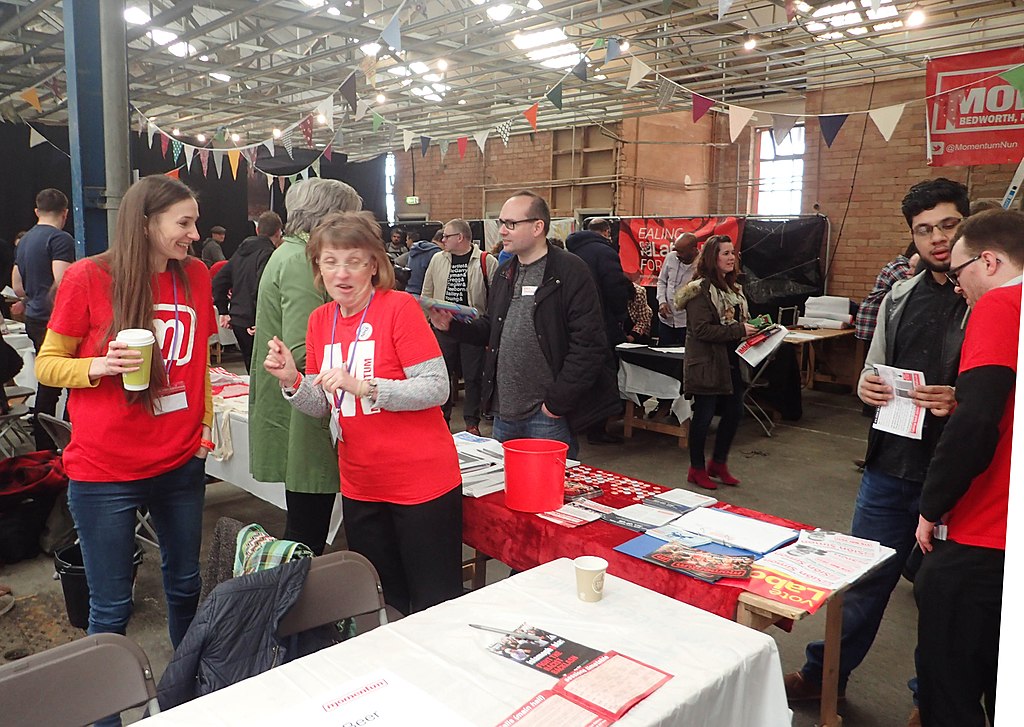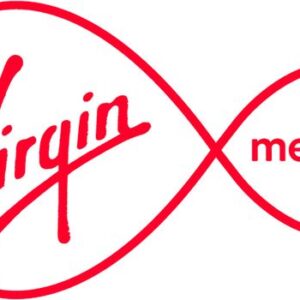In this piece, I’m going to examine whether Momentum’s actions and strategy match up with its goal of instituting Socialism in the UK. I’m going to be harshly critical of the organisation at times. As someone who wishes to see socialism established in the UK, I think it’s important to critically examine the facts to make sure that Momentum’s thousands of members are using their time and money most effectively. Hopefully, this examination will give Momentum’s members some new perspectives on the best ways to move forward. With that said, let’s dive in.
The first thing we should look at is Momentum’s stated goals. The About Us page on their website says that they’re a “socialist and anti-racist organisation committed to a fundamental and irreversible shift in wealth and power to the working class in all its diversity.
“Momentum’s role is to build popular support for socialist ideas and policies through political education and campaigns…” So far so good, but then it goes on: “and to organise to advance them in the Labour Party, with the aim of electing a socialist Labour Government to deliver them.”
Momentum spokespeople explain their reasoning for operating within the Labour Party elsewhere, and we’ll examine their arguments later on, as well as the outside influences which may be affecting the leadership’s reasoning. For now though, I’ll pose a question: what about the recent history of the Labour Party makes anyone think that it’s possible to elect a socialist Labour government?
Jeremy Corbyn only received the 35 leadership nominations necessary because some Labour MPs who didn’t expect, or want, him to win nominated him to “broaden the debate”. Several of those MPs have publicly expressed their regret about nominating him, including David Lammy, Louise Haigh, Margaret Beckett, Jo Cox, and Neil Coyle, with one of Tony Blair’s former advisors calling the MPs who nominated him “moronic.” (Because of course liberals can’t avoid casual ableism.)
According to Margaret Beckett, Labour MPs at the time were urged to nominate a broad range of candidates in order to have a range of views represented in the contest. That isn’t a stance that the majority of the party machine is going to push again anytime soon, not after seeing the Corbynism that resulted from the 2015 election. For the majority of the party’s MPs and staff, socialists in the party are to be managed and never allowed to take the helm.
Since the 2015 leadership contest, the threshold for nominations has been raised from 10 percent of Labour MPs to 20 percent. Jeremy Corbyn barely got the nomination when MPs were nominating him without any expectation of him winning. A future socialist nominee would have to get double that percentage of votes from centrist MPs who would see them as a legitimate threat, in the wake of Corbyn’s success.
To carry on with a strategy of trying to elect a socialist as leader of the Labour Party, without having any credible way to address this, requires an utterly delusional level of blind faith. No socialist is getting elected as leader of the Labour Party in the foreseeable future and any strategy which relies on that has already failed.
The myth that we can push the party leftward from within
Despite the evidence to the contrary, some people insist (blindly hope) that members can push the party left from within. This is a party that has rigged internal party elections to ensure that socialist and centre-left candidates are excluded in favour of centrists, refuses to adopt electoral reform policies that the members want, reneged on all Starmer’s policy pledges, and has sidelined the party’s own youth representatives for their whole term because they passed a motion in solidarity with Jeremy Corbyn.
In one incident alone, the CLP and union delegates passed new rules to ensure the democratic selection of candidates for by elections, only for the central party to ignore them and parachute its own loyalist in.
To think that you can push the party leftward from within when it routinely ignores the wishes of its members, and even its own internal rules of democracy, is to operate in a dream world and waste everyone’s time.
The NCG of Momentum is neither stupid nor isolated from the news. They’re undoubtedly aware of all these facts. So why do they remain wedded to the Labour Party?
Luckily we don’t have to speculate because Rachel Godfrey Wood, Head of Organising and Political Strategy, and Kate Dove, the Co-chair of Momentum, published an article on Labour List explaining the organisation’s reasoning.
Firstly, they openly acknowledge why the Labour Party is an atrocious place for socialist organising:
“Policy pledges aren’t the leadership’s only untruths. We were also promised party unity and an end to factionalism, yet Keir Starmer and his team have set about hounding the left out of the party. With Starmer outrageously promising to block Jeremy Corbyn from standing for Labour in the constituency he has represented for 40 years, selections stitched up to exclude the left and a mass bureaucratic operation to suspend or expel left-wing members, this purge of the left is unprecedented in modern British politics.”
But their reasoning for staying in the party is a mix of righteous indignation about not being pushed out, and a blind faith that we can turn the party socialist from the grassroots, even though they’ve just acknowledged that the party machinery ignores the wishes of the majority of members and actively sidelines socialists.
“No wonder many on the left have questioned: is there a point to staying in Labour?
Our answer is unequivocal: yes, there is. We must and will be prepared for all eventualities, but our response to Starmer’s threat is clear – we won’t despair, we will organise. Labour was founded as a socialist party to represent the interests of working-class people. We will not fulfil that mission by severing our links with the trade unions that have inspired us so much in the past year. And, as 2017 showed, the left can inspire a movement and rally millions upon millions to a bold socialist programme.”
Yes, the socialist movement can rally millions of people behind it, but that doesn’t matter in terms of the Labour Party if you have no way to force the leadership to adopt your policies. If anything, that’s an argument for setting up an independent socialist party.
They also make the bizarre claim that severing ties with Labour means severing ties with the UK’s unions: “We will not fulfil that mission by severing our links with the trade unions that have inspired us so much in the past year.”
Some of the UK’s unions aren’t even affiliated to the Labour party, including some which have actively distanced themselves from the party in recent years. The BFAWU, for instance, has disaffiliated itself from the Labour Party while continuing to fund Momentum. The idea that severing ties with Labour means severing ties with the unions is ridiculous. As if unions will refuse to work with a Democratic Socialist party that’s trying to improve worker rights.
Rachel Godfrey Wood and Kate Dove go on to explain that Momentum’s new strategy is two pronged: they’ll focus on local organising and on building the socialist movement within the party.
“In the short term, there is limited potential for advance at the national level within Labour. So Momentum is moving into a new phase, aimed at strengthening our local and institutional bases, within and through Labour.
“…Firstly, we will celebrate and build on our socialist success stories locally. From community wealth building in Preston to council housebuilding in Wandsworth, socialist Labour councillors are delivering for the many through local government. And we are making strides too. Despite purges by the Labour machine, last year more than 100 socialists were elected as Labour councillors for the first time, while Momentum co-produced an in-depth community wealth building toolkit.”
Getting a hundred socialists into office sounds like a great thing. Undoubtedly they’ll serve their local communities well. But under whose banner are they in office? Under the banner of the Labour Party, which will receive the public credit and admiration for their good work. Voters won’t associate any of the advances made with socialism, but with the centrist Labour Party, of which socialists stand no chance of taking control.
Momentum might as well have spent £10 million on a billboard campaign advertising Keir Starmer for all the good this will do for the cause of socialism.
Next they talk about building power bases within Labour itself:
“Secondly, we will strengthen our institutional bases within Labour. With left majorities on Young Labour and Labour Students, youth leaders like Nabeela Mowlana and young parliamentarians like Zarah Sultana, Nadia Whittome and Apsana Begum, among many others, we have huge potential to build for a socialist future.
“And whether it’s votes in Labour Students to abolish tuition fees or victory in the Socialist Health Association on a platform of full NHS renationalisation, the left is still securing victories. Momentum will focus on boosting these bases, while building up the socialist organisers and leaders of the future through our cutting-edge political education programmes.”
We’ve already discussed how the party machinery sidelined Labour’s youth representatives for their whole term in office, which shows just how functionally worthless these socialist bases inside the party are. Momentum may well help maintain socialist majorities in Young Labour and Labour Students, but to what purpose? In the hopes that one day this will magically transform into socialist control of the party machinery? The moment they can demonstrate that the party machinery will stop excluding socialists from positions of power, this will become a credible claim. Until then, it’s an exercise in the most childish of wishful thinking.
“Finally, we will campaign for bold, transformative policies in the run-up to Labour’s next manifesto, working closely with SCG MPs and other allies. From the right to food to wealth taxes, our policies have never been more urgent or popular. We have already started this work around the party’s national policy forum process and will shortly unveil an adapted process for policy ahead of conference 2023. No one expects Corbynomics reborn, but it is also true that the leadership’s best and most popular policies, like public ownership of rail, enhanced trade union rights, and public control of buses, draw from the left. We must extract every concession we can.”
In what world are Rachel Godfrey Wood and Kate Dove living that they think it matters whether the left’s policies are more popular and urgently needed than ever? Could they share the doorway to this magical land with the rest of us?
Keir Starmer almost immediately reneged on the ten pledges that won him the leadership – including the renationalisation that Momentum calls urgent – and lurched to the centre, where he’s remained. The leadership routinely ignores the policy wishes of the majority of Labour members. Neither Starmer nor his team care what the left has to say. They will make those concessions to ordinary people that suit their electoral calculus, but which don’t alienate their corporate backers. The Labour left might as well not exist in this process.
Now that we’ve examined Momentum’s rose tinted attempt at creating a workable strategy, let’s examine the other factors that could potentially justify Momentum remaining tied to the Labour Party.
FPTP Voting
The first is the difficulty of a new party making gains in the First Past the Post voting system that we have in the UK. The fact that we lack proportional representation means that it’s hard for new parties to become established, since they need a much larger percentage of the vote in order to initially win seats. This is always an argument against establishing new parties inside a FPTP system, rather than working within existing large parties to effect change.
This is a poor reason for sticking with the Labour Party however. Firstly, we’ve seen that it’s all but impossible to win the leadership of the Party for a socialist again. And secondly, both UKIP and Reform have demonstrated that a party doesn’t need to win seats in order to succeed in promoting its agenda. Nigel Farage’s parties pushed the Tories right by threatening to steal a percentage of their vote and there’s no reason to suppose that the same wouldn’t happen with the left and Labour.
If Momentum really wants to push Labour’s policy agenda leftward, that’s best done from outside. Assuming we care about being effective instead of morally self righteous.
Union Funding
Another reason why Momentum may feel tied to the Labour Party is its relationship with certain unions.
Momentum gets its office space from the TSSA union for free. The TSSA is affiliated with the Labour Party and presumably wouldn’t be happy if Momentum abandoned the party to pursue an independent strategy.
Momentum’s other funders include the CWU, which is also affiliated to the Labour Party.
While funding is a legitimate consideration for any organisation, obtaining that funding at the expense of compromising your effectiveness at achieving your goals would be foolish indeed.
Conclusion
As socialists, we have a duty to seek truth from facts. We’re engaged in an important mission for humanity that demands more from us than self delusion.
Momentum’s drive to do local organising and to train future leaders is a worthwhile strategy. The organisation’s insistence on staying wedded to the Labour Party though, isn’t just useless, but self destructive. It wastes the time, effort, and money of its tens of thousands of members in pursuing an impossible dream. Spent properly, those resources could quickly help build a strong and independent socialist party.
In the short-term, this independent party could push the UK’s politics to the left because its wildly popular policies will threaten to steal votes from the more established parties. This is the kind of policy pressure that the left can’t exert from within Labour, where its voices are ignored and not generally heard by the wider public.
In the longer term, this independent party could displace Labour as the voice of the parliamentary focused left, creating a new era of politics for the many, not the few.
Image credit: Gwydion M. Williams via https://flickr.com/photos/45909111@N00/33526362022 under the Creative Commons Attribution 2.0 Generic license





